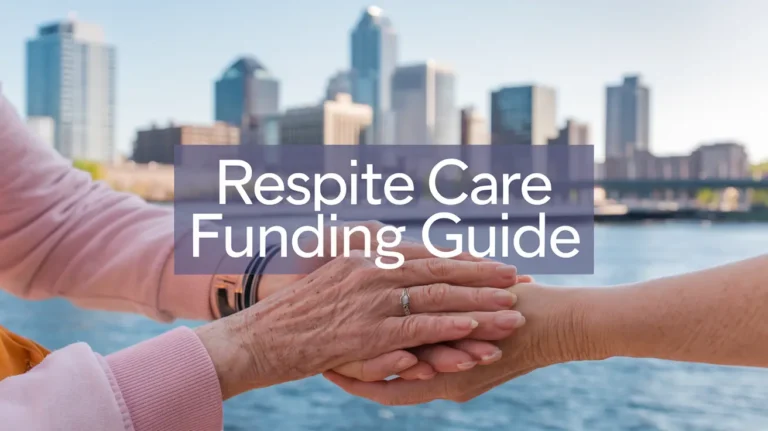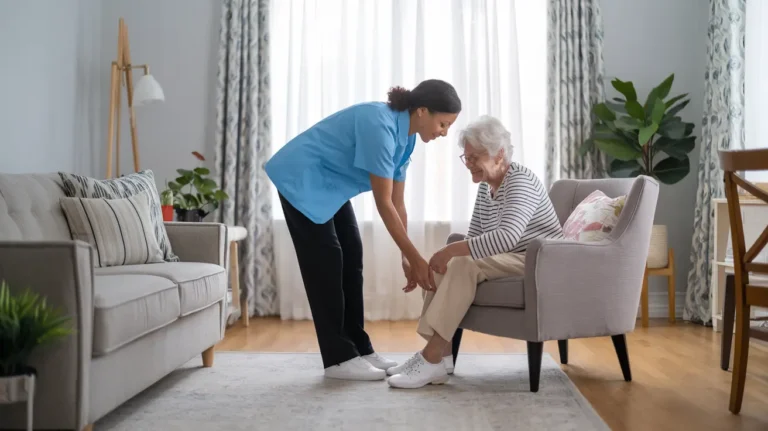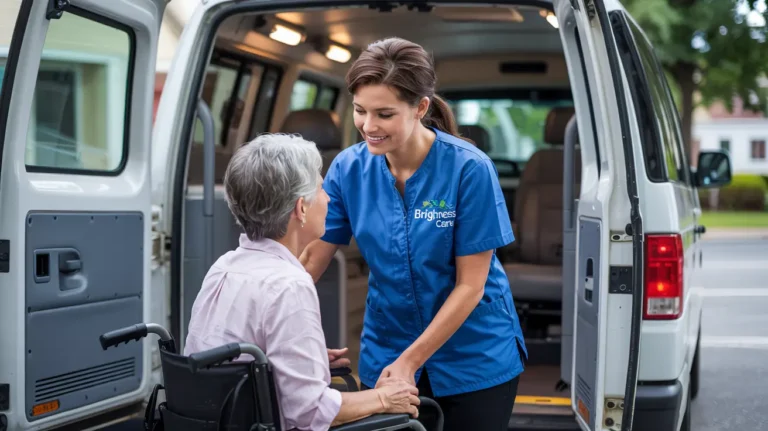Last Minute Respite Care in Indianapolis: Emergency Solutions When You Need a Break
Did you know that nearly 65% of family caregivers experience at least three emergency situations annually that require immediate backup care? I was shocked when I first learned this statistic, but after years of working with Indianapolis families, I’ve seen firsthand how quickly caregiving arrangements can unravel when the unexpected happens. A sudden illness, family emergency, work crisis, or simply hitting an emotional wall – these situations don’t politely wait for you to make arrangements weeks in advance.
The reality of caregiving is that emergencies don’t follow a schedule. Your child spikes a fever the same morning your parent with dementia needs supervision. Your back goes out the day your spouse with mobility issues has three medical appointments. Your mental health reaches a breaking point after months without a break, and you simply cannot provide quality care for another hour without help. These critical moments define the need for last minute respite care – a lifeline when you’re drowning in caregiving responsibilities.
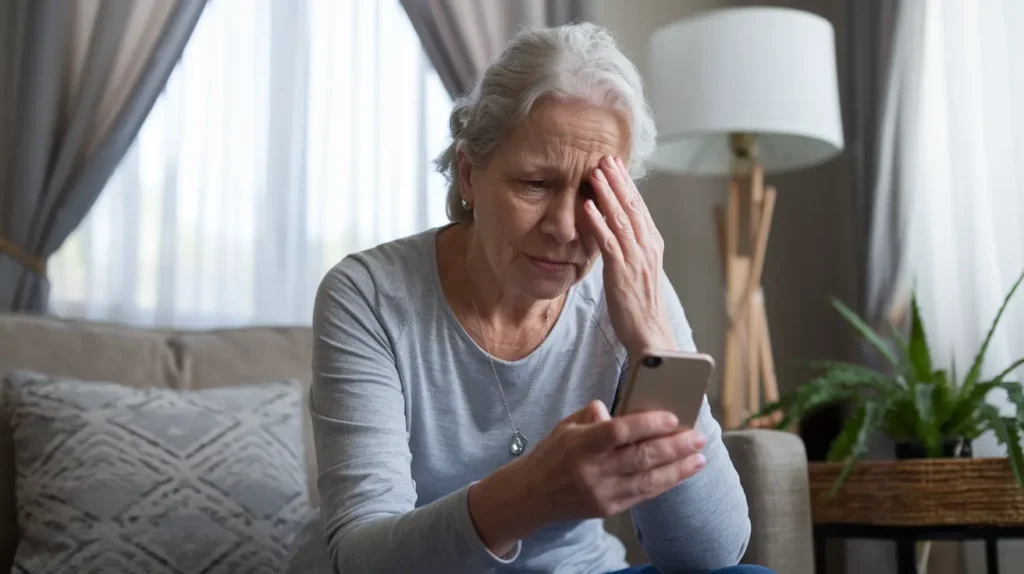
Last minute respite care isn’t just a convenience; it’s an essential service that prevents caregiver burnout, reduces the risk of neglect or substandard care, and can literally save lives in crisis situations. Having access to qualified caregivers who can step in with minimal notice provides both practical support and emotional reassurance during those moments when you feel you’ve reached your absolute limit.
Here in Indianapolis, Brightness Home Care LLC at 4911 West 38th Street has developed specialized protocols for emergency respite situations. Their team understands that while planned respite is ideal, life rarely follows our careful plans. Their rapid response system can deploy qualified caregivers within hours of contact, providing immediate relief for families in crisis without sacrificing quality or proper assessment. Their emergency care coordinators are available 24/7 to field urgent requests, making them a crucial resource for Indianapolis caregivers facing unexpected situations.
In this comprehensive guide, we’ll explore how to access, evaluate, and prepare for last minute respite care in Indianapolis. Because even the most dedicated caregivers need a safety net – and knowing your options before an emergency strikes can make all the difference when you’re facing an unexpected caregiving crisis.
Understanding Last Minute Respite Care Needs
When I first started working with caregivers in Indianapolis, I thought emergency respite care was pretty straightforward – something comes up, you need help fast. Boy, was I wrong! The reality of last minute care needs is so much more complex and emotionally charged than I ever imagined.
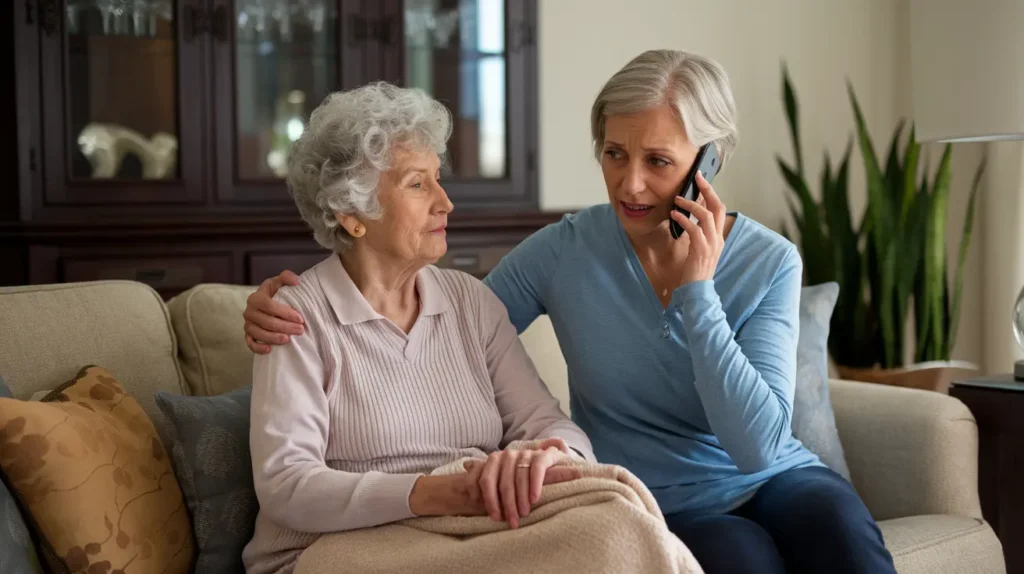
Emergency or last minute respite care is temporary relief that’s arranged with minimal notice – typically within 72 hours of need, but often within just a few hours. Unlike planned respite, which might be scheduled weeks or months in advance, emergency respite responds to situations that couldn’t be anticipated or prepared for. And let me tell you, these situations happen to even the most organized caregivers!
I’ve seen all kinds of scenarios that throw families into crisis mode. There’s the caregiver who suddenly falls ill – I remember one mom who cared for her son with cerebral palsy who developed appendicitis and needed surgery the next morning. Or the work emergencies – like the daughter caring for her father with Parkinson’s who got called for a mandatory three-day business trip with just 24 hours’ notice. Family emergencies are another common trigger – a sister in another state has an accident, and you need to travel immediately.
Then there’s what I call the “invisible emergency” – when a caregiver simply hits their emotional or physical limit. One client of mine had been caring for his wife with advanced dementia for three years without a single day off. When he called Brightness Home Care, he was in tears, saying, “If I don’t get some sleep tonight, I don’t know what I’ll do.” That’s an emergency every bit as real as a physical illness, even though it doesn’t come with a doctor’s note.
The difference between planned and emergency respite goes beyond just timing. Planned respite allows for careful matching of caregivers to clients, thorough briefing on care needs, and gradual introduction. Emergency respite requires rapid adaptation, quick assessment skills, and caregivers who can hit the ground running with minimal transition time. It’s like the difference between planning a road trip and suddenly having to catch a flight – both get you there, but the approaches are completely different!
The psychological impact of these caregiving emergencies shouldn’t be underestimated. I’ve witnessed the guilt, anxiety, and fear that wash over caregivers facing a sudden need to step away. Many describe feeling like they’re abandoning their loved one, even when the circumstances are completely beyond their control. Others experience intense stress about whether a last-minute caregiver will understand their loved one’s needs and routines.
At Brightness Home Care on West 38th Street, we’ve found that having an emergency backup plan dramatically reduces this psychological burden. Even if you never use it, knowing there’s a safety net in place allows caregivers to focus on the immediate crisis rather than spiraling into worry about care coverage.
The benefits of having an emergency care plan are enormous. First, it provides immediate practical support when you’re most vulnerable. Second, it prevents dangerous situations where care recipients might be left without proper supervision or assistance. Third, it allows caregivers to address their own needs without compromise – whether that’s getting medical treatment, handling a family crisis, or simply getting critical rest before burnout leads to serious health consequences.
I’ve made some pretty big mistakes in my caregiving journey. The worst was probably thinking I could handle everything myself without a backup plan. I learned the hard way that this approach doesn’t just hurt me – it puts the person I’m caring for at risk too. Now I tell every family I work with in Indianapolis to develop an emergency respite plan before they need it, because when crisis hits, you won’t have the emotional bandwidth to research options from scratch.
Creating an emergency respite care plan isn’t complicated, but it does require some forethought. Start by researching providers like Brightness Home Care that specifically offer last-minute services (not all do!). Make initial contact before an emergency occurs, so they already have basic information about your situation. Keep a care notebook with essential information a substitute caregiver would need. And perhaps most importantly, give yourself permission to use emergency services when you need them, without guilt or hesitation.
Different care recipients have different emergency respite needs. Someone with dementia might need a caregiver experienced in managing memory care issues. A child with sensory processing challenges might need someone trained in specific calming techniques. Indianapolis has various specialized respite options, but they’re not all equipped for emergency situations. That’s why at Brightness Home Care, we maintain a diverse team of caregivers with specialized training who can be deployed quickly in crisis situations.
The reality is that many caregivers wait until they’re already in crisis before they look into emergency respite options. By then, their decision-making capacity is compromised by stress, exhaustion, or worry. I’ve seen too many families struggle through emergency situations without support simply because they didn’t know their options ahead of time or how to access them quickly. Proactive planning makes all the difference when minutes count.
Vetting Last Minute Respite Care Providers
Lemme tell you about the time I hired an emergency caregiver without proper vetting. I was desperate – my regular helper canceled last minute, and I had an important presentation at work. I called the first agency that answered and took whoever they sent. Big mistake! The caregiver had zero experience with diabetes management, which was essential for my mother’s care. I spent my entire presentation worrying instead of focusing.
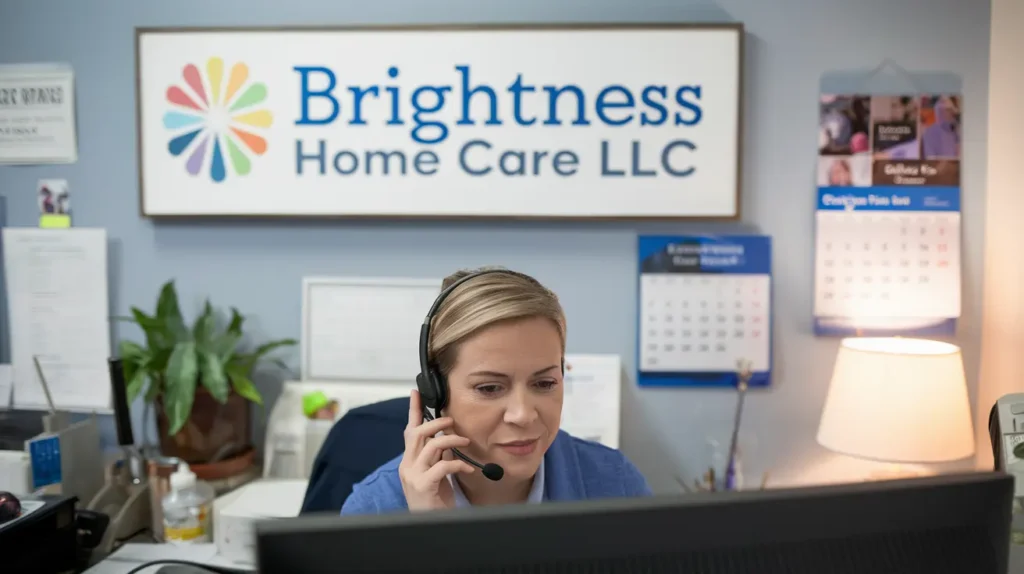
Even in crisis mode, there are essential qualifications you absolutely cannot compromise on. First, verify the agency is properly licensed in Indiana – this isn’t negotiable, even in emergencies. Second, confirm their caregivers have undergone thorough background checks. Third, ensure they carry proper insurance – both liability and workers’ compensation. At Brightness Home Care LLC, we maintain digital copies of all these credentials specifically so we can verify them quickly during emergency placements.
Red flags become much harder to spot when you’re in panic mode, but they’re actually more important than ever. Be wary of agencies that can’t clearly explain their emergency screening process or who promise impossibly fast response times without asking detailed questions about care needs. If they’re willing to send just anyone without proper matching, that’s a massive warning sign. Another red flag is reluctance to provide supervisor contact information for after-hours concerns.
Despite time constraints, you need to ask potential providers some critical questions: “How do you screen caregivers for emergency assignments?” “What specific training do your caregivers have related to my loved one’s condition?” “Who will be available if problems arise during care?” “How do you handle medication management in emergency situations?” “What’s your process if the assigned caregiver faces an emergency of their own?”
When evaluating if Brightness Home Care is suitable for your emergency, we encourage families to ask about our emergency response protocols. Unlike some agencies that simply send the first available person, we maintain a specialized emergency response team of caregivers with additional training in rapid adaptation and assessment. We also provide digitized care plans that can be instantly shared with emergency caregivers, ensuring they have critical information before they even arrive at your home.
The screening process becomes even more important for specialized care needs. If your loved one has dementia, mobility challenges, or complex medical requirements, the emergency caregiver must have specific experience in these areas. I learned this lesson when caring for my uncle with Parkinson’s – the emergency caregiver didn’t understand freezing episodes and called 911 unnecessarily, creating even more chaos during an already stressful time.
I’ve found that checking an agency’s online reviews specifically for mentions of emergency or last-minute care can be incredibly revealing. Look for comments about responsiveness, caregiver qualifications in crisis situations, and how well the agency handled unexpected problems. At Brightness Home Care on West 38th Street, we’re particularly proud of our emergency response reviews, which often mention our ability to maintain quality despite time constraints.
Don’t underestimate the importance of communication capabilities when vetting emergency providers. Can they text updates? Do they have a reliable system for documenting care during emergency placements? Will you receive a detailed report of what happened during your absence? These communication factors become crucial when you’re already managing a crisis and need clear information about your loved one’s care.
One verification method that many families overlook is asking about the agency’s caregiver-to-coordinator ratio. Agencies with too many caregivers per coordinator often struggle with emergency placements because they lack the capacity for proper matching and oversight. At Brightness Home Care, we maintain a ratio that ensures every emergency situation receives thorough attention despite time constraints.
Insurance acceptance becomes particularly important in emergency situations when costs might be higher. Some agencies, including Brightness Home Care, can bill certain insurance plans directly for emergency respite services, potentially reducing your out-of-pocket expenses during a crisis. Always ask about this possibility, especially for longer emergency placements.
The importance of provider screening despite time constraints cannot be overstated. I remember a client who needed emergency overnight care when her husband was hospitalized unexpectedly. She chose an agency based solely on who could get there fastest, without checking credentials. The caregiver was completely unprepared for her mother’s sundowning behaviors, creating a dangerous situation that could have been avoided with proper matching.
Technology can help with rapid vetting. Some agencies now offer video introductions to potential emergency caregivers before they arrive, allowing you to briefly connect face-to-face even in urgent situations. Others maintain digital profiles of their emergency response team that can be quickly shared with families. These technological solutions don’t replace thorough vetting but can provide additional reassurance during crisis situations.
One strategy I recommend is creating an emergency provider list before you need it. Contact several reputable agencies in Indianapolis, including Brightness Home Care, and pre-screen them for emergency capabilities. Keep this list with your other emergency information so you’re not starting from scratch when crisis hits. This advance preparation can save precious hours during an actual emergency while ensuring you don’t compromise on quality.
Preparing for Potential Respite Care Emergencies
I learned about emergency planning the hard way. Three years ago, my sister had a medical emergency while I was the primary caregiver for our father with advanced COPD. The scramble to find qualified last-minute help was absolute chaos – I was making calls from the hospital waiting room, trying to remember medication dosages and oxygen settings while simultaneously worrying about my sister. That experience completely changed how I approach respite care preparation.
Creating an emergency respite care plan isn’t just helpful – it’s absolutely essential. Think of it as an insurance policy you hope you’ll never need to use. The most effective emergency plans include multiple backup options: perhaps a professional agency like Brightness Home Care LLC as your primary resource, a trained family member or friend as secondary, and community resources as your third option. Having this tiered approach ensures you’re never left without options, even during holidays or other high-demand periods.
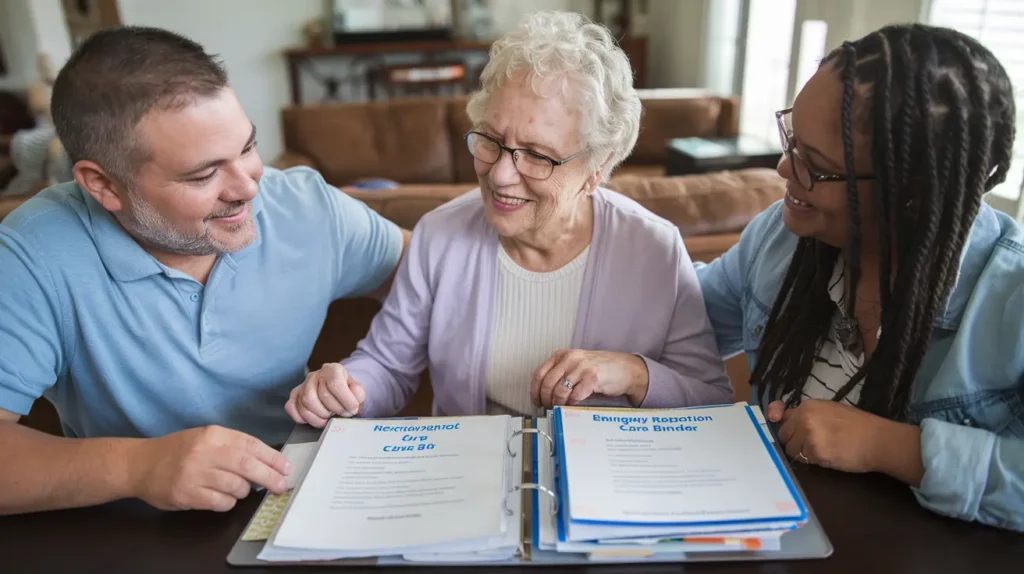
The cornerstone of any emergency plan is documentation. I recommend creating what I call an “Emergency Care Binder” that contains everything a substitute caregiver would need to know. At Brightness Home Care on West 38th Street, we actually provide our clients with templates for creating these binders, knowing how crucial they are during crisis situations. The peace of mind that comes from having this information organized and accessible is truly priceless.
Essential documents to have ready include medical history, current medication list with dosage schedules, healthcare provider contact information, insurance cards, advance directives, and power of attorney paperwork. Keep digital copies of these documents in a secure but accessible location – I’ve had clients email password-protected files to themselves so they can access critical information from anywhere during an emergency. Physical copies should be clearly labeled and stored where emergency caregivers can easily find them.
Medication information requires special attention in your emergency planning. Beyond just a list of prescriptions, include details about medication reactions, which medications can be taken together, specific administration instructions (with food? crushed or whole?), and any recent dosage changes. Photos of medication bottles can be incredibly helpful for emergency caregivers unfamiliar with your loved one’s regimen. I remember one client who color-coded her mother’s medication organizer and included a matching color-coded chart – brilliant for preventing errors during emergency situations!
Care routine documentation doesn’t need to be elaborate, but it should be thorough. Focus on daily schedules, personal care preferences, mobility assistance needs, dietary restrictions, and behavior management techniques. One approach that works well is creating a “typical day” timeline that walks a caregiver through your loved one’s routine hour by hour. Include notes about preferences that impact comfort – the specific way Dad likes his pillows arranged, Mom’s favorite mug for tea, or the precise water temperature your child prefers for bathing.
I once made the mistake of not documenting my father’s transfer technique, assuming any professional would know how to help him from wheelchair to bed. The emergency caregiver used a different method that aggravated his back pain, creating unnecessary discomfort during an already stressful time. Now I tell families to be extraordinarily specific about physical care techniques, even recording video demonstrations when appropriate.
Contact information should extend beyond just doctors and family members. Include neighbors who have keys, friends who understand the care situation, regular caregivers who might be able to provide phone guidance, and even pet care resources if needed. At Brightness Home Care, we maintain an emergency contact network for each client, ensuring that our emergency respite caregivers can quickly connect with people familiar with the care recipient’s needs.
How you organize this information significantly impacts its usefulness during emergencies. My professional recommendation is a three-ring binder with clearly labeled dividers and a table of contents. The first page should be a one-sheet emergency overview with the most critical information. Some families create electronic versions using applications designed for caregiving, but always have a physical backup in case of technology failures.
Preparing your home for potential emergency respite is another often-overlooked aspect of planning. Create a designated location for all care supplies, clearly label items that aren’t self-explanatory, and consider preparing an emergency caregiver kit with essentials like disposable gloves, hand sanitizer, extra incontinence products, and basic first aid supplies. One family I worked with even created a map of their home noting important locations like the circuit breaker, water shut-off valve, and medical equipment.
Briefing a respite caregiver quickly and effectively requires advance preparation. Create a “First Hour Checklist” that prioritizes the absolutely essential information needed immediately. This might include current medication timing, immediate physical needs, communication methods, and any safety concerns. At Brightness Home Care, our emergency respite caregivers are trained to work through this type of prioritized information, focusing first on immediate needs before absorbing the more detailed care plan.
Technology can be a tremendous asset in emergency respite situations. Consider setting up a secure digital caregiving notebook that can be shared instantly with emergency providers. Some families use caregiver communication apps that allow quick sharing of care instructions, medication reminders, and even photos demonstrating specific care techniques. Video chat capabilities can allow you to virtually introduce an emergency caregiver to your loved one and demonstrate particular care routines even if you can’t be physically present.
Household logistics matter enormously during emergency respite. Where are the extra supplies stored? Which foods are appropriate for special diets? How does the shower safety equipment work? Creating a simple household guide with this information can save precious time and prevent unnecessary stress during emergency situations. One client created a series of labeled photos showing where to find everything from extra incontinence products to the specific tea her husband preferred each evening.
Test your emergency plan before you actually need it. Consider scheduling a “practice” respite session with your designated emergency provider. At Brightness Home Care, we offer “emergency readiness sessions” where we review your emergency documentation, familiarize a potential caregiver with your home environment, and identify any gaps in your preparation. This trial run can reveal critical missing information before an actual emergency occurs.
Remember that emergency respite planning isn’t a one-time task – it requires regular updates. Set calendar reminders to review your emergency care documentation quarterly, updating medication information, care techniques, and contact details as needed. This ongoing maintenance ensures your emergency plan remains relevant and effective, regardless of when crisis strikes.
Last Minute Respite Care for Special Needs in Indianapolis
Finding emergency respite care is challenging enough, but when you’re caring for someone with special needs? That’s when things get really complicated. I learned this lesson the hard way when my sister with dementia had a particularly difficult sundowning episode the same night I came down with a stomach virus. Talk about terrible timing! The frantic search for qualified help in those midnight hours taught me why specialized emergency respite care is so critical.
Emergency Options for Dementia and Alzheimer’s Patients
Memory care requires specialized knowledge, and in emergency situations, this becomes even more crucial. Individuals with dementia or Alzheimer’s often become severely agitated when faced with unexpected changes in routine or unfamiliar caregivers. I remember one client who became so distressed during a caregiver emergency that he wandered out of his home in the middle of winter.
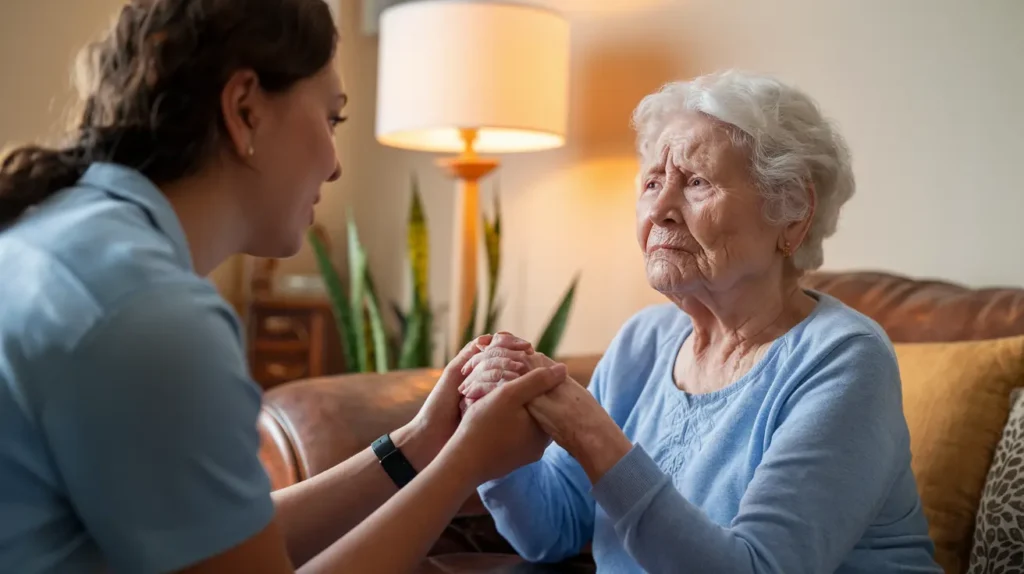
In Indianapolis, several providers offer emergency memory care respite, but their approaches vary significantly. Brightness Home Care LLC has developed a specific protocol for emergency dementia care that includes sending caregivers who are extensively trained in memory care techniques and who carry “memory kits” containing familiar items, photographs, and sensory tools to ease the transition.
The key with emergency dementia care is maintaining as much normalcy as possible despite the crisis. Good providers will ask detailed questions about routines, triggers, and comfort measures even during urgent intake. They’ll want to know about sundowning patterns, preferred activities, and communication methods that work best for your loved one.
I’ve found that the most effective emergency respite for dementia patients involves sending caregivers who can arrive 30-45 minutes before they’re actually needed to allow for a gradual introduction. This isn’t always possible in true emergencies, but the best agencies prioritize this approach whenever feasible.
Solutions for Individuals with Complex Medical Requirements
When medical needs enter the picture, the stakes for emergency respite care get even higher. Ventilators, feeding tubes, medication regimens, wound care – these complex needs don’t pause when the primary caregiver faces an emergency.
Indianapolis has a limited number of providers capable of handling complex medical needs on short notice. Brightness Home Care stands out with their specialized medical respite team, which includes caregivers with LPN or RN backgrounds who can be deployed in emergency situations. Their West 38th Street location maintains a database of caregivers categorized by specialized medical skills, allowing them to match urgent needs with appropriate providers quickly.
I worked with a family whose son required tracheostomy care and suctioning. When the mother needed emergency gallbladder surgery, finding qualified respite seemed impossible until they connected with a specialized medical respite service. The coordination between hospital discharge planners and the respite agency made a potentially disastrous situation manageable.
For complex medical needs, documentation becomes absolutely critical in emergency situations. Having a current medication list, physician contacts, equipment instructions, and care protocols readily accessible can make the difference between a smooth transition and a dangerous situation. The best agencies will have systems for quickly reviewing and implementing these protocols even in crisis situations.
Last Minute Care for Children with Special Needs
Finding emergency childcare is stressful for any parent, but when your child has special needs, the challenge multiplies exponentially. Behavioral concerns, communication differences, sensory sensitivities, and specialized routines make quick caregiver substitutions particularly difficult.
In Indianapolis, options for emergency respite for children with special needs include specialized agencies, certain skilled home health providers, and a small network of trained individual providers. Brightness Home Care has developed a pediatric special needs division specifically to address these emergency situations, with caregivers trained in autism support, behavioral management techniques, and communication methods including ASL and PECS.
I still remember helping a single father find overnight emergency care for his son with autism when the father needed to rush to the hospital for his own father’s heart attack. The anxiety about finding someone who understood his son’s specific sensory needs and behavioral triggers was almost as overwhelming as the medical emergency itself.
For children with special needs, having a “respite care passport” on hand can be invaluable in emergencies. This document outlines comfort measures, communication preferences, behavioral strategies, and safety concerns in a format that can be quickly reviewed by emergency caregivers. Some forward-thinking families even create video guides demonstrating how to navigate difficult routines or transitions.
Mental Health Crisis Respite Options
Mental health emergencies create unique respite care challenges, whether you’re caring for someone experiencing a crisis or you’re a caregiver whose own mental health has reached a breaking point. The stigma and complexity surrounding mental health can make finding appropriate emergency respite particularly difficult.
Indianapolis offers several specialized mental health respite options, including crisis stabilization units and peer respite programs, though availability is often limited. For in-home emergency mental health respite, agencies with specialized behavioral health training like Brightness Home Care provide caregivers who understand how to support individuals during mental health emergencies while maintaining safety.
I’ve witnessed the profound relief when caregivers of individuals with serious mental illness finally access emergency respite during a crisis. One woman caring for her adult son with schizophrenia hadn’t slept for three days during his episode of psychosis – the arrival of a qualified respite caregiver allowed her to rest while knowing her son was in capable hands.
For mental health-related respite, safety planning becomes paramount. Good providers will conduct rapid safety assessments, ensure environmental safety, and establish clear communication protocols about when additional intervention might be needed. They’ll also work closely with existing mental health providers when possible, even in emergency situations.
How Brightness Home Care Addresses Specialized Emergency Care
What truly sets apart emergency respite providers is their ability to handle specialized needs without compromising quality despite time constraints. At Brightness Home Care, their emergency respite protocol includes several key elements that address specialized care needs:
They maintain a specialized care response team available 24/7, with caregivers grouped by areas of expertise for quick deployment.
Their intake process, even during emergencies, focuses on identifying specialized needs and matching them with appropriately trained caregivers.
They’ve developed condensed training protocols that allow caregivers to quickly absorb critical information about specialized care requirements.
Their emergency care coordinators function as case managers during the crisis period, checking in frequently and adjusting care plans as needed.
They maintain relationships with local hospitals, psychiatric facilities, and specialty care providers to facilitate coordination during emergencies.
I’ve watched their specialized emergency respite process in action when a family needed immediate care for their mother with Parkinson’s and dementia after her primary caregiver suffered a heart attack. Within hours, they had a qualified caregiver in place who understood both the physical care requirements and the cognitive challenges.
The reality of specialized emergency respite care is that it requires preparation whenever possible. The families who navigate these crises most successfully have often had some preliminary contact with potential providers before emergencies occur. Even a brief consultation to discuss potential specialized needs can expedite the process dramatically when a crisis actually hits.
In my years working with Indianapolis families navigating caregiving emergencies, I’ve found that compassion combined with specialized knowledge makes all the difference in these high-stress situations. When you’re facing a caregiving crisis with specialized needs involved, knowing there are providers who understand those specific challenges provides immeasurable peace of mind during the most difficult moments.
Navigating Costs for Emergency Respite Services
Let me tell you, the financial aspect of emergency respite care caught me completely off guard the first time I needed it! I remember frantically calling around Indianapolis, desperate for someone to stay with my father after my mother was unexpectedly hospitalized, and being shocked at the price quotes I was receiving. That experience taught me a lot about navigating the costs of last-minute care, which I’m now sharing with families through my work.
The typical pricing for last minute respite care in Indianapolis runs about 15-30% higher than planned services – and for good reason. Emergency staffing requires providers to adjust schedules, potentially pay overtime, and complete expedited assessments. In 2024, you can expect to pay between $28-35 per hour for standard emergency respite care, with rates potentially reaching $40-50 per hour for specialized care involving complex medical needs, dementia care, or overnight support.
Many families don’t realize that there’s often a minimum service block for emergency requests. While planned respite might allow for 2-3 hour visits, most emergency services require a minimum of 4-6 hours. At Brightness Home Care LLC on West 38th Street, they’ve created more flexible emergency blocks of 3 hours to help make services more accessible during crises.
Insurance coverage for emergency respite situations is honestly a mixed bag. I’ve seen families get caught in painful financial situations assuming their insurance would cover emergency care. The truth? Traditional health insurance typically doesn’t cover respite services, even in emergencies. However, there are some important exceptions worth investigating:
Long-term care insurance often includes emergency respite provisions, though there may be a waiting period before benefits begin.
Some Medicare Advantage plans (though not traditional Medicare) include limited respite benefits, particularly for hospice patients.
Medicaid waiver programs in Indiana may cover emergency respite, but the approval process can be challenging to navigate quickly.
Veteran’s benefits through the VA often include caregiver support services that can be accessed in emergencies.
One morning last year, I got a call from a completely exhausted daughter caring for her father with Parkinson’s. She desperately needed a break but was worried about costs. We helped her discover that her father’s long-term care policy actually had an emergency respite provision she wasn’t even aware of! The moral of the story? Check your policies carefully – you might have coverage you don’t know about.
When insurance isn’t an option, several financial assistance resources exist for urgent respite needs in Indianapolis:
The Indiana Family Caregiver Support Program sometimes offers emergency vouchers for respite services.
Area Agency on Aging’s Crisis Fund can provide emergency financial assistance for senior services.
Disease-specific organizations (like the Alzheimer’s Association or MS Society) often maintain emergency respite funds.
Faith-based organizations and community foundations in Indianapolis sometimes provide emergency grants for caregiving families.
The ARCH National Respite Network maintains a respite voucher program that can sometimes be accessed quickly.
The challenge with many of these resources is the paperwork and approval time – not ideal in a true emergency. That’s why I always recommend families establish relationships with these organizations before crises hit.
At Brightness Home Care, they’ve developed several payment options specifically for crisis situations that I wish I’d known about years ago. Their emergency care coordinator can help families quickly determine if they qualify for any expedited assistance programs. They offer a sliding scale for families in genuine hardship situations and can sometimes arrange payment plans for emergency services when needed. They also maintain relationships with several local charities that can sometimes provide immediate financial support.

I’ve learned that the cost difference between emergency and planned respite isn’t just about hourly rates. When you’re forced into emergency care, you lose the ability to comparison shop, negotiate rates, or arrange the most cost-effective scheduling. One family I worked with ended up spending nearly double on emergency weekend care what they would have paid for the same hours scheduled in advance!
Let me break down a realistic cost comparison:
Planned weekly respite: 4 hours once a week for a month (16 hours total) at $25/hour = $400
Emergency equivalent: 4 hours of same-day service at $32/hour plus $75 emergency coordination fee = $203 for just one visit
The financial math clearly favors planned respite, which is why I strongly encourage families to incorporate regular respite into their care plans rather than waiting for emergencies. At Brightness Home Care, they offer package discounts for families who schedule regular respite that can save 10-15% compared to their one-time service rates.
One cost-saving strategy I recommend is creating an emergency respite co-op with other caregiving families in your situation. I helped several Indianapolis families establish a small fund they each contribute to monthly that can be accessed by any member experiencing a care emergency. Combined with professional services, this approach provides financial flexibility when crises hit.
Another financial consideration most families miss is the tax implications. The Child and Dependent Care Tax Credit can sometimes be applied to respite care expenses, even emergency ones. Keep meticulous records of all respite care payments, as these may help reduce your tax burden even when they strain your immediate budget.
The cost of NOT getting emergency respite also needs consideration. I’ve seen too many caregivers end up hospitalized themselves after trying to push through without help. The financial impact of a caregiver health crisis almost always exceeds the cost of temporary emergency care. When calculating costs, factor in what you’re potentially saving by preserving your own health and ability to continue providing care.
Something I learned through bitter experience: read the fine print on cancellation policies for emergency services. Some agencies charge substantial fees if the emergency resolves and you no longer need the scheduled care. Brightness Home Care has implemented a more flexible cancellation policy for genuine emergencies, but many providers haven’t.
Let me share a budgeting tip that’s helped many families I’ve worked with: set aside a specific “emergency respite fund” – even $20-50 per month can accumulate to provide a financial buffer when unexpected care needs arise. Think of it as an insurance policy for your caregiving journey.
The financial conversations around emergency care can feel overwhelming during an already stressful time. Don’t hesitate to be transparent about your situation when calling providers. Many, including Brightness Home Care, will work to find creative solutions for families in genuine crisis. The most important thing is ensuring that both you and your loved one receive the support needed, even when finances are tight.
Building a Long-term Relationship After Emergency Care
That first emergency respite care situation with my uncle was a complete blur. I was so focused on my own medical emergency that I barely remembered meeting the caregiver from Brightness Home Care who stepped in to help! But that crisis moment actually became the foundation for the most valuable caregiving relationship I’ve established. Trust me when I say that what starts as emergency relief can transform into a lifesaving long-term partnership.
Transitioning from crisis care to regular respite planning is like upgrading from constantly putting out fires to actually fireproofing your house. After the immediate emergency has passed, I always recommend scheduling a calm, detailed follow-up meeting with the respite care provider who assisted during your crisis. At Brightness Home Care, we’ve developed a specific post-emergency assessment process that helps convert that rushed emergency introduction into a comprehensive care plan.

I remember working with one family who called us at 2 AM when the primary caregiver had to be hospitalized unexpectedly. We provided emergency coverage for three days, but what made the real difference was the planning meeting we held the following week. We identified that the caregiver had been showing signs of burnout for months before the emergency. This honest conversation allowed us to implement a regular weekly respite schedule that prevented any similar crises for over two years!
The benefits of establishing ongoing respite arrangements after an emergency are honestly too numerous to count, but I’ll share the big ones I’ve observed. First, there’s the obvious stress reduction that comes with having regular breaks. Then there’s the improved care quality – because let’s be real, none of us provide our best care when we’re exhausted and overwhelmed. Having scheduled respite also creates a reliable backup system for future emergencies. And perhaps most importantly, it establishes a care relationship before another crisis, meaning any future emergency support will be provided by someone who already knows your loved one’s needs.
Evaluating care quality after an emergency requires a slightly different approach than assessing planned care. During my years at Brightness Home Care on West 38th Street, I’ve developed some specific questions to ask yourself: Did the emergency caregiver maintain your loved one’s dignity during a chaotic situation? Were safety protocols followed despite the rushed circumstances? How was communication handled during the crisis? Was documentation complete even under pressure? The answers to these questions can tell you volumes about whether this provider will excel in non-emergency situations as well.
I also recommend seeking input directly from your care recipient about their experience with the emergency caregiver. Sometimes they notice things we miss! One client told me she knew she’d found her perfect match because the emergency respite caregiver had thoughtfully placed her water glass on her left side (her stronger side) without being told – a small detail that made a huge difference in her comfort during a stressful time.
Creating a sustainable care schedule with Brightness Home Care after an emergency means taking an honest look at your caregiving situation. The emergency didn’t happen in a vacuum – it likely revealed cracks in your current support system. I work with families to identify high-stress periods (evenings, weekends, specific days of the week), recurring appointments that create time pressures, and seasonal factors that increase caregiving demands. This detailed analysis allows us to build respite schedules that prevent burnout rather than simply responding to it.
Technology has become an incredible tool for maintaining these schedules. Our online portal allows primary caregivers to request temporary schedule adjustments, communicate special needs, and coordinate with their respite team. This flexibility means that small issues don’t snowball into emergencies – you can request extra support when you feel yourself beginning to struggle, not when you’re already at breaking point.
Preventing future caregiver emergencies requires some serious self-awareness – something that’s really hard to develop when you’re in the caregiving trenches! I encourage all families I work with to establish regular self-check-ins using a burnout assessment tool. These simple questionnaires help identify when you’re approaching dangerous levels of stress before you reach crisis stage. At Brightness Home Care, we actually send optional monthly check-in reminders to our clients’ primary caregivers – just a gentle nudge to assess their current wellbeing.
Financial planning also plays a crucial role in preventing emergencies. Many families I’ve worked with have established emergency respite care funds – setting aside a specific budget for unexpected care needs separate from their regular respite schedule. This financial preparation removes one major barrier to seeking help during emerging crises.
Building your caregiver support network beyond just respite services is another critical prevention strategy. I always encourage families to connect with condition-specific support groups, attend caregiver skills training, and maintain relationships with friends and family who can provide emotional support. At Brightness Home Care, we maintain a resource directory specifically for Indianapolis caregivers that includes everything from meal delivery services to caregiver support groups.
Your relationship with your respite care provider should evolve over time as care needs change. I’ve worked with some families for years, adjusting their support levels as their loved one’s condition progressed or as the primary caregiver’s own health fluctuated. This adaptability is key to a sustainable long-term care partnership. What works today may not work next year, and a quality provider will proactively suggest adjustments rather than waiting for another crisis.
Trust develops gradually in these relationships. That emergency caregiver who once seemed like a stranger will, over time, become an essential part of your care team. I’ve seen beautiful friendships develop between families and their regular respite caregivers at Brightness Home Care – relationships built on mutual respect, shared care goals, and genuine concern for each other’s wellbeing.
The emotional journey from crisis to stability is one I’ve witnessed countless times. That initial reluctance to accept help often transforms into profound gratitude for the support system that develops. As one client told me, “What started as the worst day of my life – when I simply couldn’t care for my husband anymore – turned into the beginning of a new chapter where I learned that accepting help made me a better caregiver.”
Remember that building this long-term relationship isn’t just about preventing emergencies – it’s about creating a sustainable caregiving approach that honors both your loved one’s needs and your own wellbeing. Every family deserves that kind of support, and finding it often starts with that first emergency call that you wish you never had to make.
Finding Peace of Mind: Your Last Minute Respite Care Solution
Listen, I’ve been there – that moment of panic when your carefully balanced caregiving arrangement suddenly falls apart. The good news? You’re not alone, and solutions exist right here in Indianapolis, even when time isn’t on your side.
Throughout my years working with families in crisis, I’ve seen how last minute respite care has transformed desperate situations into manageable ones. Emergency respite services are more accessible than many caregivers realize. Even at 2 AM on a holiday weekend, there are qualified professionals ready to step in and provide the relief you desperately need. Don’t let the fear of not finding help prevent you from reaching out when you’re at your breaking point.
I can’t stress this enough – your self-care isn’t optional, even during emergencies. In fact, it becomes even more critical during crisis situations. Think about those airplane safety demonstrations – you have to secure your own oxygen mask before helping others. The same principle applies to caregiving. Taking that essential break when you’re overwhelmed doesn’t make you selfish or inadequate – it makes you responsible. Your loved one deserves care from someone who isn’t running on empty.
Remember those key preparation steps we discussed:
- Create and maintain an updated emergency care binder with all essential information
- Establish relationships with potential respite providers before crises occur
- Keep a dedicated emergency fund specifically for unexpected care needs
- Document daily routines, preferences, and special instructions
- Maintain a current medication list with dosages and schedules
- Identify trusted friends or family who could provide immediate short-term help
Having these elements in place dramatically improves your ability to access quality last minute care when you need it most.
When emergency respite needs arise in Indianapolis, Brightness Home Care LLC stands ready to respond with compassion, professionalism, and urgency. Their team at 4911 West 38th Street understands that caregiving crises don’t wait for convenient business hours. Their 24/7 emergency response line connects you directly with care coordinators who can mobilize qualified caregivers rapidly, often within hours of your call.

Don’t wait until you’re in the middle of a crisis to reach out. Contact Brightness Home Care today at (317) 619-0761 to discuss their emergency respite protocols and how they can become your safety net when unexpected caregiving challenges arise. Taking this simple step now could provide immeasurable peace of mind when you face your next caregiving emergency.
Remember, seeking help isn’t admitting defeat – it’s a powerful act of love that ensures both you and your loved one receive what you need during difficult times.


